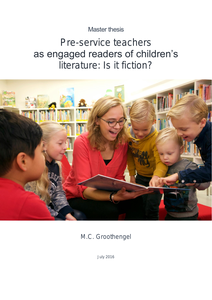The present study investigated whether text structure inference skill (i.e., the ability to infer overall text structure) has unique predictive value for expository text comprehension on top of the variance accounted for by sentence reading fluency, linguistic knowledge and metacognitive knowledge. Furthermore, it was examined whether the unique predictive value of text structure inference skill differs between monolingual and bilingual Dutch students or students who vary in reading proficiency, reading fluency or linguistic knowledge levels. One hundred fifty-one eighth graders took tests that tapped into their expository text comprehension, sentence reading fluency, linguistic knowledge, metacognitive knowledge, and text structure inference skill. Multilevel regression analyses revealed that text structure inference skill has no unique predictive value for eighth graders’ expository text comprehension controlling for reading fluency, linguistic knowledge and metacognitive knowledge. However, text structure inference skill has unique predictive value for expository text comprehension in models that do not include both knowledge of connectives and metacognitive knowledge as control variables, stressing the importance of these two cognitions for text structure inference skill. Moreover, the predictive value of text structure inference skill does not depend on readers’ language backgrounds or on their reading proficiency, reading fluency or vocabulary knowledge levels. We conclude our paper with the limitations of our study as well as the research and practical implications.
DOCUMENT

The main result of this effectiveness study is that a reading program with a focus on students’ poetry reading processes, based on observational learning via eye movement modeling examples, can improve students’ reading comprehension for different text types. In a pretest-posttest design with an experimental group (ten classes) and a control group (five classes), students’ self-efficacy regarding their own reading process and their reading comprehension were measured. Over a six-week period, teachers of Dutch and their students worked with the six experimental lessons, instead of the regular reading program: students observed and evaluated contrasting peer reading processes, reflected on differences with their own reading process, and then they practiced aspects of a deep reading process. The program resulted in significant progress in the reading comprehension of “expository texts” (ES = .66), “short stories” (ES = .66), and especially “poetry” (ES = .81). Furthermore, the self-efficacy test results show that students in the experimental condition experienced significantly more learning effect after the intervention period than those in the control group. Moreover, based on the learning reports, evaluation tasks and interviews, it appears that the participants in the innovative program have become aware of their reading and how they improved their performance.
LINK
Hoe kunnen lerarenopleidingen, pabo-studenten stimuleren om enthousiaste en belezen leesbevorderaars te worden? In dit onderzoek worden eigenschappen van pabo-studenten en de omgeving geïdentificeerd die invloed kunnen hebben op de leesfrequentie, leesattitude en kennis van kinderliteratuur. Daarnaast worden de leesfrequentie, leesattitude en kennis van kinderboeken bij pabo-studenten beschreven.
DOCUMENT
